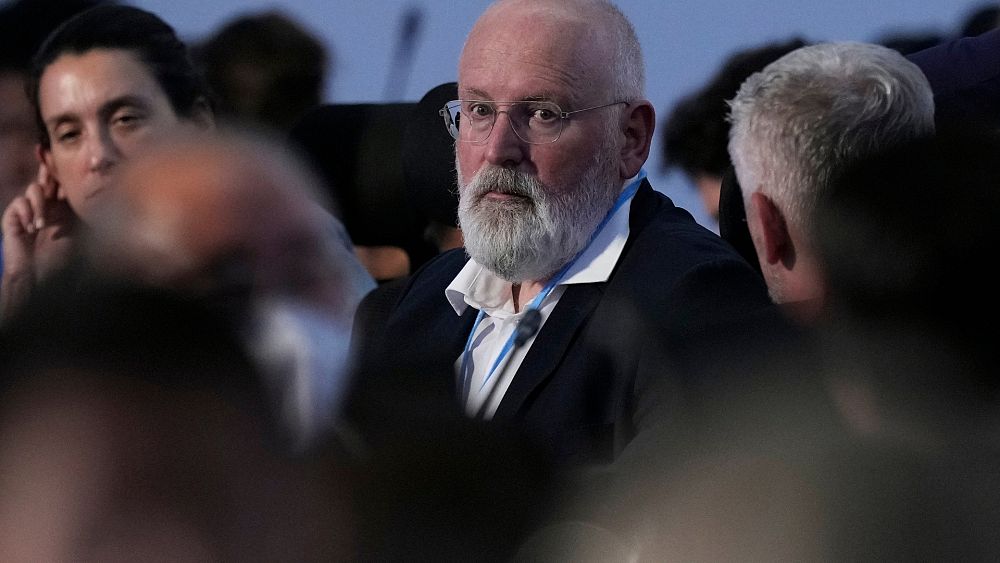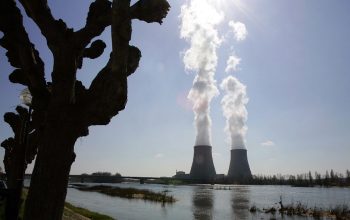
The Intergovernmental Panel on Climate Change has just released its latest report from the world’s leading climate experts.
They say that the reality of the crisis is bad and it is rapidly getting worse.
But the IPCC’s scientists have underlined that there is an enormous opportunity to change the course of the future – it is “now or never”.
The Paris Agreement warming limit of 1.5C is still within reach. We have the solutions we need in this critical decade to cut emissions and exit from fossil fuels.
So how have politicians, conservationists and environmental groups reacted to the IPCC’s “final warning” on the climate crisis?
COP28 will be crucial in this decade of action
The COP28 Presidency says that the report “underscored what we already know: the world is not on track to achieve the goals of the Paris Agreement”.
It adds that the evidence is clear, emissions aren’t falling fast enough and the most vulnerable who have contributed the least to climate change are experiencing the worst impacts.
“COP28, hosted by the UAE, will be crucial in this decade of action.”

The Presidency will lead the response to the Global Stocktake – the first ever “report card” on countries’ progress towards the Paris Agreement. Guided by the IPCC, it explains that this must be the moment to “usher in a complete and urgent response that accelerates all our efforts”.
At COP28, the UAE will need everyone to work together on solutions while prioritising inclusivity, accountability and transparency. Big industries need to go further in their climate action. Trillions of dollars need to be unlocked to enable this immense transition.
“Let us work together, in solidarity, to deliver a plan that is based on the excellent work of the IPCC, and accelerated by truly global cooperation,” encourages the COP28 Presidency.
A basis for more ambition at COP28
The IPCC Synthesis Report will now be used by governments to set climate targets and policies for the future.
The European Commission’s Executive Vice-President for the European Green Deal, Frans Timmermans, said it should be the basis for more ambition at COP28 in the UAE later this year.
“The science is clear: the longer we wait with deep emissions cuts, the higher the risks, the more damage,” he wrote on Twitter.
Timmermans suggested that nations need to put forward updated Nationally Determined Contributions – climate promises from countries around the world.
“As soon as negotiations on #Fitfor55 are final, the EU is ready to update its NDC, as announced last year,” he added.
“We call on other parties to follow suit to ensure that we keep 1.5 degrees within reach, as they promised in Glasgow and Sharm el-Sheikh.”
Timmermans also said it shows the need for a global emissions peak by 2025, the phase-out of unabated fossil fuel use, and robust domestic policies that “get the job done”.
IPCC report is a ‘terrifying flood’ of evidence on the reality of climate change
Humanitarian organisation ActionAid says the major IPCC report needs to be “the trigger that moves the world from grudging acceptance to rapid action”.
Its global lead on climate justice Teresa Anderson explains that there is a “terrifying flood” of evidence showing that the climate impacts are already worse and harming billions more people than was predicted even just a few years ago.
“It proves the urgent need for the UN to make good on last year’s historic decision at COP27 to create a new fund to help communities affected by climate-induced loss and damage,” Anderson says.
Flora Vano
ActionAid country director for Vanuatu
For the NGO’s country director in Vanuatu, Flora Vano, the report hits home. The island in the South Pacific Ocean faces regular and intense weather events.
“This report is important because it captures the dire state of the planet and forecasts a future dictated by ever-intensifying and frequent disasters,” says Vano.
“But in Vanuatu, I only need to leave my home to witness the harsh realities of a warming world.”
This month alone, it has experienced two cyclones in the space of a week and the situation is desperate. Vano says this is “the reality of climate change”.
“We don’t want to be told to move to another island or another country.”
Nature is the climate’s secret ally
Nature is climate’s secret ally – IPCC science shows nature has absorbed around 54 per cent of human-related carbon dioxide emissions over the past decade, according to WWF.
In the wake of the report, scientists from the independent conservation organisation are calling on governments to accelerate action to phase out fossil fuels, slash emissions and restore nature.
“The evidence is crystal clear, the science is unequivocal – it’s just the lack of political will that’s holding us back from the bold action that’s necessary to avert a climate catastrophe,” says Dr Stephen Cornelius, WWF’s Global Deputy Lead Climate and Energy.
“Leaders who ignore the science of climate change are failing their people. A rapid phase-out of fossil fuels is essential, as is protecting and restoring natural ecosystems.”
Cornelius adds that we can’t hope to limit global warming to 1.5C, adapt to climate change and save lives and livelihoods without acting to safeguard and restore nature.
“Nature is a non-negotiable part of the solution to the climate crisis.”


